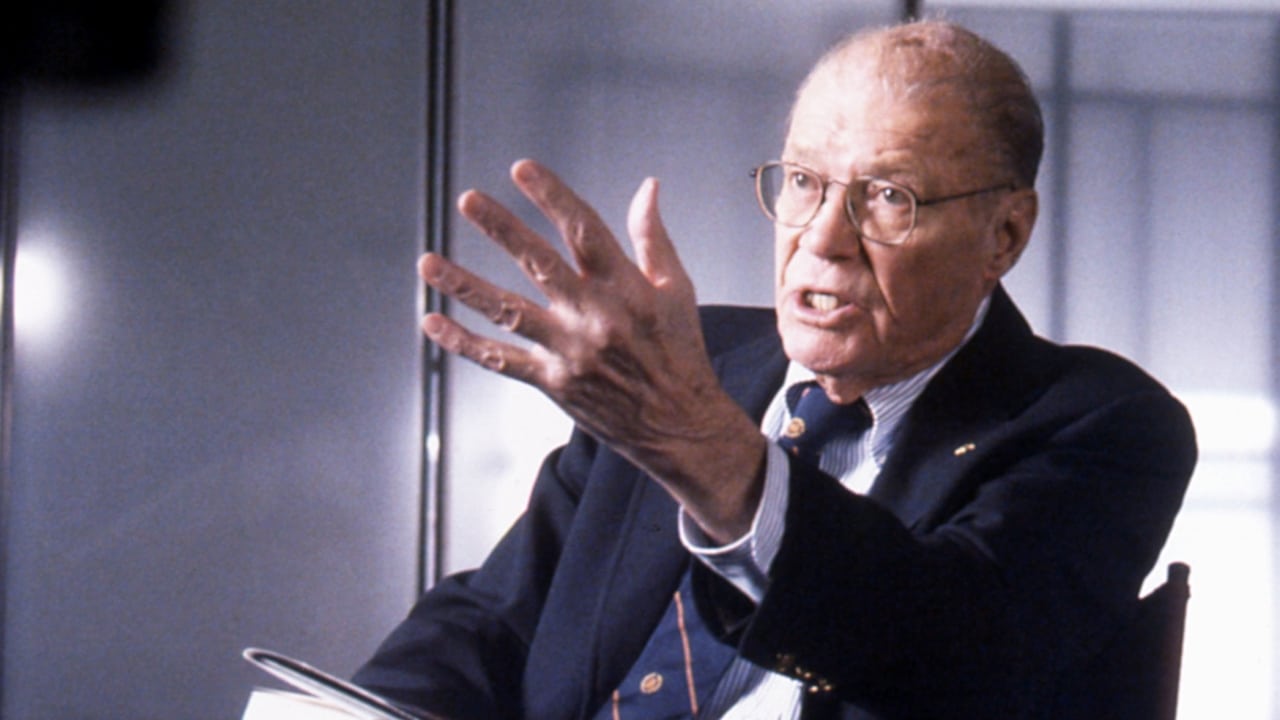Smartorhypo
Highly Overrated But Still Good
Dorathen
Better Late Then Never
Taha Avalos
The best films of this genre always show a path and provide a takeaway for being a better person.
Isbel
A terrific literary drama and character piece that shows how the process of creating art can be seen differently by those doing it and those looking at it from the outside.
asymptot
It's worth seeing a smart but (in the past, at least) potentially misguided man explore his role in history. Yes, it's a bit biased in downplaying McNamara's role in pushing for the continuation of the Nam war, but it does show a man who has primarily learned the error of his follies. Perhaps he learned them a bit too late, but his account serves to hopefully teach future world shapers not to make the same mistakes. This movie shows the tragedy of how smart men can still be excruciatingly dumb in certain situations, and that, as McNamara says, rationality, in itself, will not save us.
rwinters42
I am hoping that the death of Robert McNamara today will motivate more people to see this film. It changed my view of the man, and of history, and I am more than a little shocked at those who say it had no effect on them whatsoever.The "eleven lessons" of which some are complaining, in my opinion, are a mechanism to provide structure to the film, and to move from topic to topic. They prevent the film from being 90 uninterrupted minutes of "talking head", and (again IMO) are not really the point of the film in and of themselves. There's no quiz at the end; you have missed it, somehow.If you think of McNamara's brilliance as a tool to be used to achieve some end, it boggles the mind how many different and better ways history could have turned out. JFK had the right instinct to hire this brilliant man (and he didn't even seem to care for which post); Johnson made the mistake of not listening to him, and instead turning that brilliance to the task of tilting at a really big windmill. McNamara's willingness to do his regular level best in pursuit of a policy that even he thought was wrong -- well, there's the real tragedy.The "what if" games you can play with this are endless. If McNamara had stayed at Ford, then a lesser man would have done a poorer job at pressing a bad policy (thus ending the war earlier), and we'd probably all have 100mpg (or flying) cars by now.Left, right, or center -- this is a "must see" film. Think what you will of McNamara (and you will), but I don't think one person in a million would give us such an unblinking view of his own life's events; everyone should admire at least that much about the man.
MisterChandu
I really can't say how impressed I was with this film. The question here is who was directing who?This is a primary record of history as important as any other document on film I have ever scene.Diem being assassinated and Kennedy also soon after makes one wonder if maybe the stars were against us anyhow. I can remember the summer of 1963. All we were concerned about at the time was if we would beat the Russians to the moon. It was the better part of the cold war.Oh well.History can be so much rubbish except to those who will repeat it's mistakes.
djestic03
This is the only movie I have viewed twice in a row, and apologize for having NO clue why the movie was so compelling. It left me emotionally wrung out. It is NOT just some boring, emotionless war movie, war re-telling, or piece of propaganda. McNamara is electrifying, riding the roller coaster of emotions from knee-slapping humor to teary-eyed, voice-cracking despair to nerve-tingling horror at the destruction that was...and could've been. His intelligence is a wonder of its own: he displays no ego, speaks plainly, and avoids any self-aggrandizement, but his perspective is invaluable. And the lessons here have broader applications, suitable for anyone who would be in politics/government, business, management, foreign affairs, or supervision. Kudos to him, and the director!

